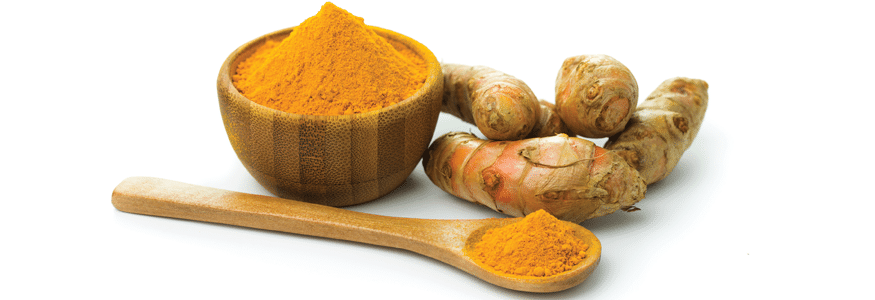
Many Benefits of Turmeric
Curcumin (diferuloylmethane) is the active compound (phytochemical) in the common, bright yellow curry spice, turmeric. Indian, Chinese, and Western herbal medicines traditionally use turmeric, of the ginger family, for conditions such as poor digestion, abdominal pain, and distension. In 1999, the World Health Organization recommended it for treatment of acid reflux, flatulence, and functional dyspepsia, as used in Ayurvedic medicine.
Ten years ago, the Canadian Society of Intestinal Research, the Gastrointestinal Society’s sister charity, provided funding for Dr. Baljinder Salh’s research into the benefits of curcumin in colon cancer. Salh and his Vancouver team contributed to a building body of evidence that this flavourful spice can help prevent cancerous cells from developing in the colon.1
A basic research study2 from India looked at mice with induced colitis and found that curcumin exerts beneficial effects in experimental colitis by mediating the inflammatory processes. Therefore, it may be useful in the treatment of inflammatory bowel disease.
A clinical study3 from the UK involving 207 irritable bowel syndrome patients showed improvement in their symptoms after the researchers had them take turmeric tablets. The researchers recommend further, larger, placebo-controlled studies.
Other clinical trials support a potential therapeutic role for curcumin specifically in familial adenomatous polyposis, inflammatory bowel disease, ulcerative colitis, colon cancer, pancreatic cancer, hypercholesteremia, atherosclerosis, pancreatitis, psoriasis, chronic anterior uveitis, and arthritis. Thus, researchers suggest that curcumin – a spice once relegated to the kitchen shelf – has moved into the clinic and may prove to be ‘Curecumin’.4
Curcumin is currently a keenly studied compound, with 121 active clinical trials on the US government website5 as of September 2015; there is no similar way to search for natural health clinical trials in Canada.
Enjoy the delicious, aromatic experience of turmeric and its healing properties in your food, but wait for further research before consuming supplements. There are so many things we don’t know about why and how a food offers benefit, but we do know that nothing compares to a product in its natural state.

